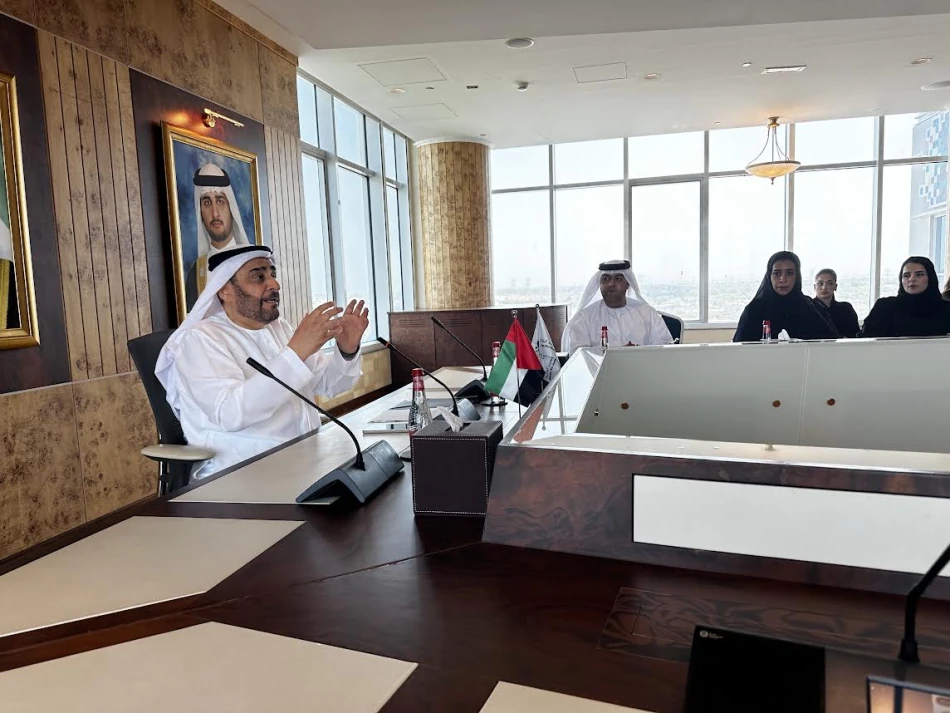
Smart Hamdan University: AI-Powered Assistant for Every Faculty Member
Dubai University Launches Revolutionary AI Teaching Assistant System, Setting Global Precedent for Higher Education
Hamdan Bin Mohammed Smart University in Dubai has unveiled the region's first comprehensive AI agent system that assigns a dedicated artificial intelligence assistant to every faculty member. This groundbreaking initiative promises to slash content development time by 85% and reduce faculty workload by 95%, while potentially reshaping how universities worldwide approach AI integration in higher education.
A Strategic Move Aligned with UAE's AI Vision
The launch represents more than just technological adoption—it's a calculated step toward cementing the UAE's position as a global leader in AI-enhanced education. The initiative directly supports the UAE's National AI Strategy 2031 and the Education Strategy 2033 (E33), demonstrating how regional universities are becoming testbeds for technologies that could define the next decade of higher education.
Dr. Mansour Al Awar, the university's president, emphasized that this move fulfills the vision of Sheikh Hamdan bin Mohammed bin Rashid Al Maktoum, Crown Prince of Dubai, who declared that "artificial intelligence will form the basic pillar for designing future initiatives and services in Dubai."
How the AI System Transforms Academic Operations
Core Capabilities and Functions
Each AI agent handles three critical academic functions: content development for creating course curricula, assessment design for crafting examinations, and performance analysis for tracking student progress. The system can also suggest targeted support strategies for struggling students, creating a more responsive educational environment.
The university reports impressive efficiency gains: content development time drops by 85%, faculty administrative burden decreases by 95%, and academic achievement levels increase by 40%. These metrics, if sustained, could provide a compelling business case for similar implementations across the region.
Freeing Faculty for Higher-Value Work
By automating routine academic tasks, the system allows professors to focus on research, mentorship, and personalized student guidance. This shift mirrors broader workforce trends where AI handles repetitive tasks while humans concentrate on creative and strategic work.
Global Context and Competitive Positioning
While universities worldwide experiment with AI tools, few have implemented such comprehensive, faculty-wide systems. Stanford and MIT have piloted AI teaching assistants for specific courses, and Singapore's universities have integrated AI in administrative functions, but Dubai's approach appears more systematic and ambitious.
This positions the UAE ahead of regional competitors like Saudi Arabia and Qatar, both of which are heavily investing in educational technology as part of their economic diversification strategies. The timing is strategic—as global demand for AI-skilled graduates surges, universities with proven AI integration capabilities will likely attract more international students and partnerships.
Implementation Challenges and Safeguards
The university has embedded professional ethics standards into the system, including privacy protection, bias reduction, transparency measures, and accessibility compliance. These safeguards address common concerns about AI in education, particularly around data privacy and algorithmic fairness.
The system was developed entirely in-house by the university's team, led by Professor Maitha Al Tunaiji, Vice President for AI and Technology. This internal development approach reduces dependency on external vendors and allows for customization based on regional educational needs and cultural considerations.
Market Implications and Future Outlook
For education technology companies, Dubai's initiative signals growing demand for comprehensive AI solutions rather than point applications. Universities globally will likely monitor this implementation closely, potentially creating a new market for similar integrated AI systems.
The financial benefits—reduced course development costs and improved operational efficiency—could make this model particularly attractive to institutions facing budget pressures. If successful, this approach may become a standard feature universities need to remain competitive in attracting both students and faculty.
The initiative also positions Dubai as a hub for AI education expertise, potentially attracting international partnerships and research collaborations. As the global education sector increasingly embraces digital transformation, early movers like Hamdan Bin Mohammed Smart University may gain significant competitive advantages in the evolving landscape of higher education.
Most Viewed News

 Sara Khaled
Sara Khaled






